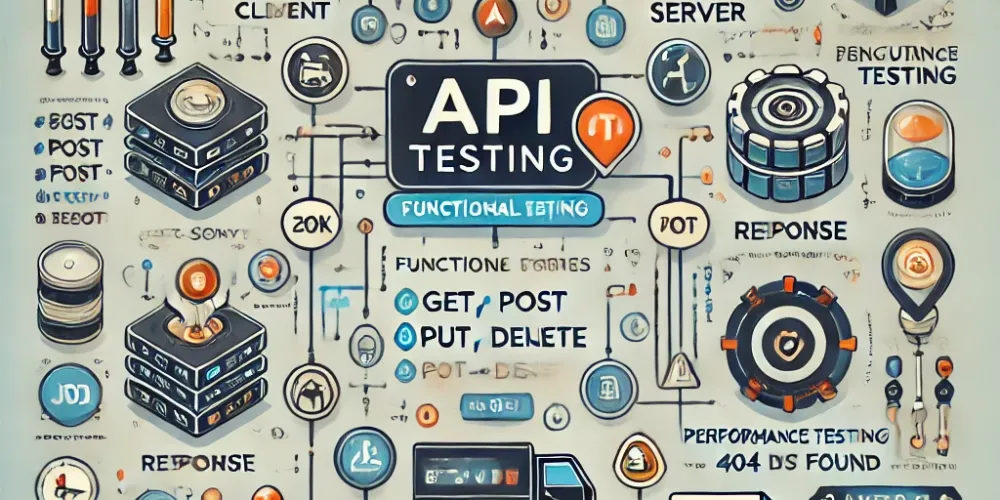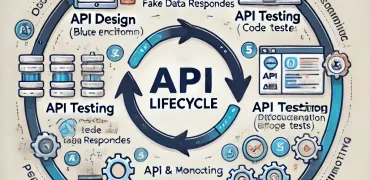API Testing: Why It’s Essential for High-Quality Software

If your app relies on APIs (and most apps do), making sure those APIs work correctly is crucial. That’s where API testing comes into play. But why is API testing so important, and how can it help you deliver a better product?
In this post, we’ll break it down.
What Is API Testing?
API testing involves running tests on your app’s API to make sure it works as expected. Unlike testing the user interface, API testing focuses on how well the API handles requests and provides the right responses.
There are several types of API testing:
- Functional Testing: Ensures the API does what it’s supposed to do.
- Load Testing: Verifies that the API can handle heavy traffic without breaking.
- Security Testing: Checks for vulnerabilities like unauthorized access or data leaks.
- Error Testing: Simulates what happens when the API encounters issues like bad input or timeouts.
Why API Testing Matters
API testing is critical for a number of reasons. Here’s why:
- Boosts Reliability You don’t want your API to fail in production. By catching issues early through testing, you’ll avoid costly downtime and broken features.
- Speeds Up Development With API tests in place, you can catch problems early, saving time and effort down the road. It also helps developers ensure that their code changes don’t accidentally break existing functionality.
- Ensures Security APIs are a common target for hackers, so ensuring your API is secure is key. API testing helps you spot potential security risks before they become a problem.
- Improves User Experience APIs play a big role in how fast and smooth your app feels. Testing helps make sure your API responds quickly and delivers the right data, which translates to a better experience for users.
How to Get Started with API Testing
Implementing API testing might seem overwhelming at first, but with the right tools and approach, it’s a breeze. Here’s how you can get started:
- Define What You Need to Test Start by mapping out all the scenarios that need testing. These might include checking valid inputs, invalid inputs, and how the API performs under different conditions like high traffic.
- Choose a Testing Tool There are a lot of tools out there that make API testing easy. Popular ones include Postman, SoapUI, and Katalon Studio. These tools let you set up automated tests, run them, and see detailed reports.
- Automate Your Tests Once you’ve set up your test cases, make sure to automate them. This allows you to run tests continuously as you make changes to your code, ensuring faster and more reliable feedback.
- Keep Testing Regularly Don’t just test your API once and forget about it. As your API evolves, you’ll need to regularly update and rerun tests to ensure everything still works as expected.
Overcoming Common API Testing Challenges
While API testing is incredibly helpful, it comes with some challenges:
- Dynamic Data: APIs often rely on changing data, which can complicate testing. Use mock data where possible to avoid issues.
- Multiple Environments: Testing in different environments (like staging or production) requires careful configuration to prevent errors or misconfigurations.
- Protocol Differences: APIs can use different protocols like REST, SOAP, or GraphQL, each with its own unique testing approach. Be sure you’re familiar with the protocol your API uses.
The Future of API Testing
API testing is becoming more critical as software becomes more complex. At Doxify, we’re developing a powerful API testing platform that will help developers easily test their APIs for functionality, performance, and security. Our platform will simplify testing, automate workflows, and help you catch bugs before they reach production. Keep an eye out for our upcoming release!
Conclusion: By focusing on simple language, clear headings, and short paragraphs, these blog posts are designed to be easily readable and informative. Plus, with targeted keywords like "API mocking," "API testing," and related phrases, the content is optimized for better search rankings and higher visibility on Google.



